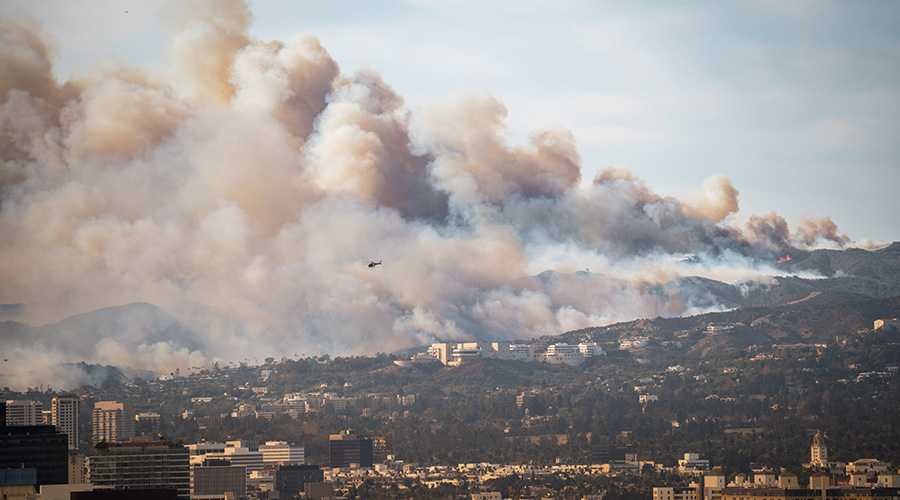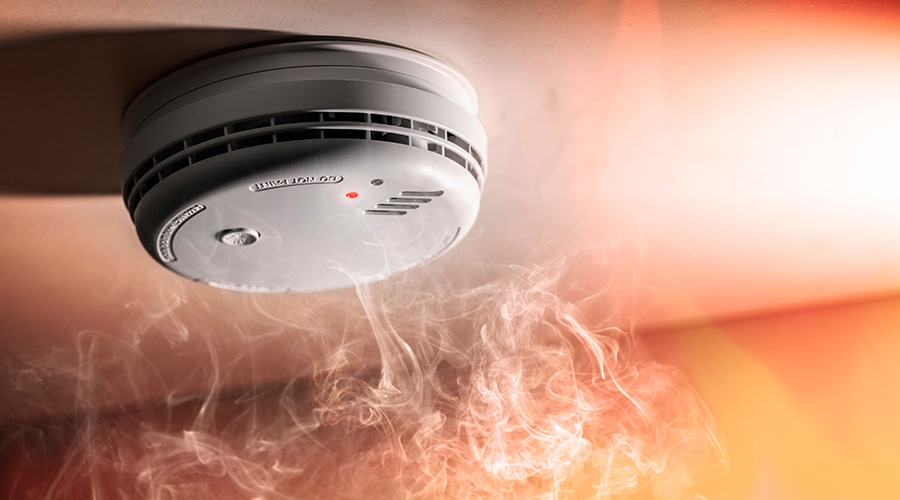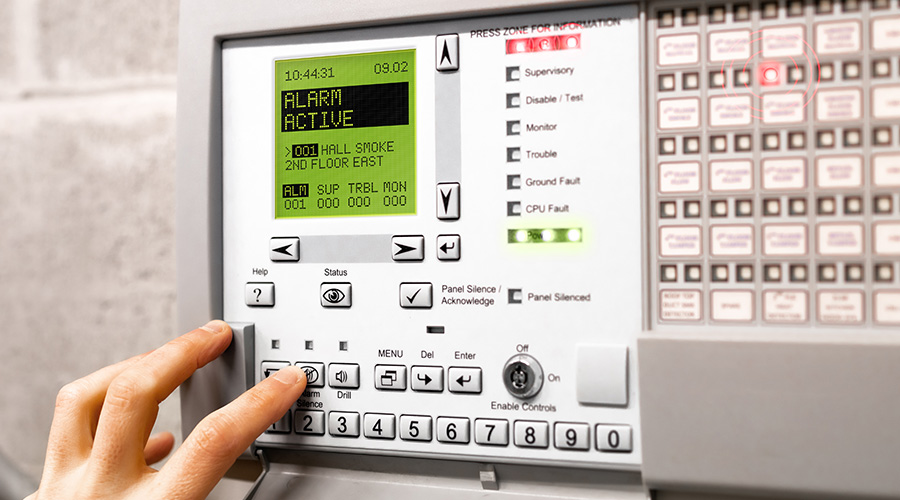Fire Alarms: Tone-Only Vs. Voice Systems
Help for facility managers when deciding which fire alarm system to invest in
A fire alarm system is generally designed for a facility to provide protection in addition to any automatic sprinkler system that may be required by the building code. The type and extent of a fire alarm system will be dependent on the use of the facility, the facility owner’s fire protection goals, the facility’s insurance company requirements, and the local authority having jurisdiction (AHJ).
This Q&A series is written to help facility managers ensure that their fire alarm systems fully meet applicable requirements of NFPA 72, National Fire Alarm and Signaling Code, the model fire alarm systems installation standard that is incorporated into almost all Building, Fire, and local codes.
1. Does NFPA 72 require a tone-only or voice fire alarm system?
NFPA 72 is an installation standard and does not require any specific system. However, the building and life safety codes contain language that could require a voice or non-voice fire alarm system. A tone-only fire alarm system can be installed in most applications; however, if the egress is complicated or there is a planned relocation of occupants rather than total evacuation, a voice system would be required. Typically, a voice fire alarm system (EVACS) is installed in high rise buildings, but it may be installed in other buildings if a risk analysis for the property indicates the need for a voice fire alarm system. The building code may also require that some occupancies, like new K-12 educational occupancies, be provided with a voice fire alarm system. There are many advantages in installing a voice fire alarm system, and many facilities install a voice fire alarm even if a tone-only system is required.
2. Is there a difference in cost between a tone-only and voice fire alarm system?
Yes. A voice system will cost more as, in general, loudspeakers cost more than tone-only notification appliances. Voice systems also require separate audio circuits, amplifiers, and microphone(s). However, the advantages of communication options available with a voice system may offset the cost increase. Inspection, testing, and maintenance costs for a tone-only and voice fire alarm system are similar.
3. How can I decide between a tone-only and voice fire alarm system?
In the past most fire alarm systems were tone-only. The occupants received one piece of information, an alarm notification (usually a horn signal), as an indication to evacuate. Since 2010, more voice communications systems have been introduced to accommodate both fire alarm and mass notification. What’s more, as explained in the previous questions, changes within NFPA 72 have been made to allow these voice fire alarm systems to be used for other non-emergency purposes, allowing code-required fire alarm systems to be used for multiple communications purposes. Obviously, voice fire alarm systems allow more information to be provided to the occupants regarding fire location, intensity, and exactly how they should respond to the fire or other emergency condition. During non-emergency conditions, local code requirements may allow the voice fire alarm system to be used for general paging or background music throughout the building.
Wayne D. Moore is a licensed professional fire protection engineer with over 45 years of engineering experience. Moore currently serves on the NFPA 72 Correlating Committee and Chapter 24 Technical Committee (past Chair), as well as being an editor of five editions of the “National Fire Alarm Code Handbook.”
Larry D. Rietz, is a NICET Level IV Certified fire alarm designer with more than 29 years of life safety industry experience. Rietz is Vice President and Global Service Line Leader for Fire Detection and Alarm for Jensen Hughes and serves on the NFPA 72 Chapter 24 and 12, 21, & 23 Technical Committees.
Related Topics:















